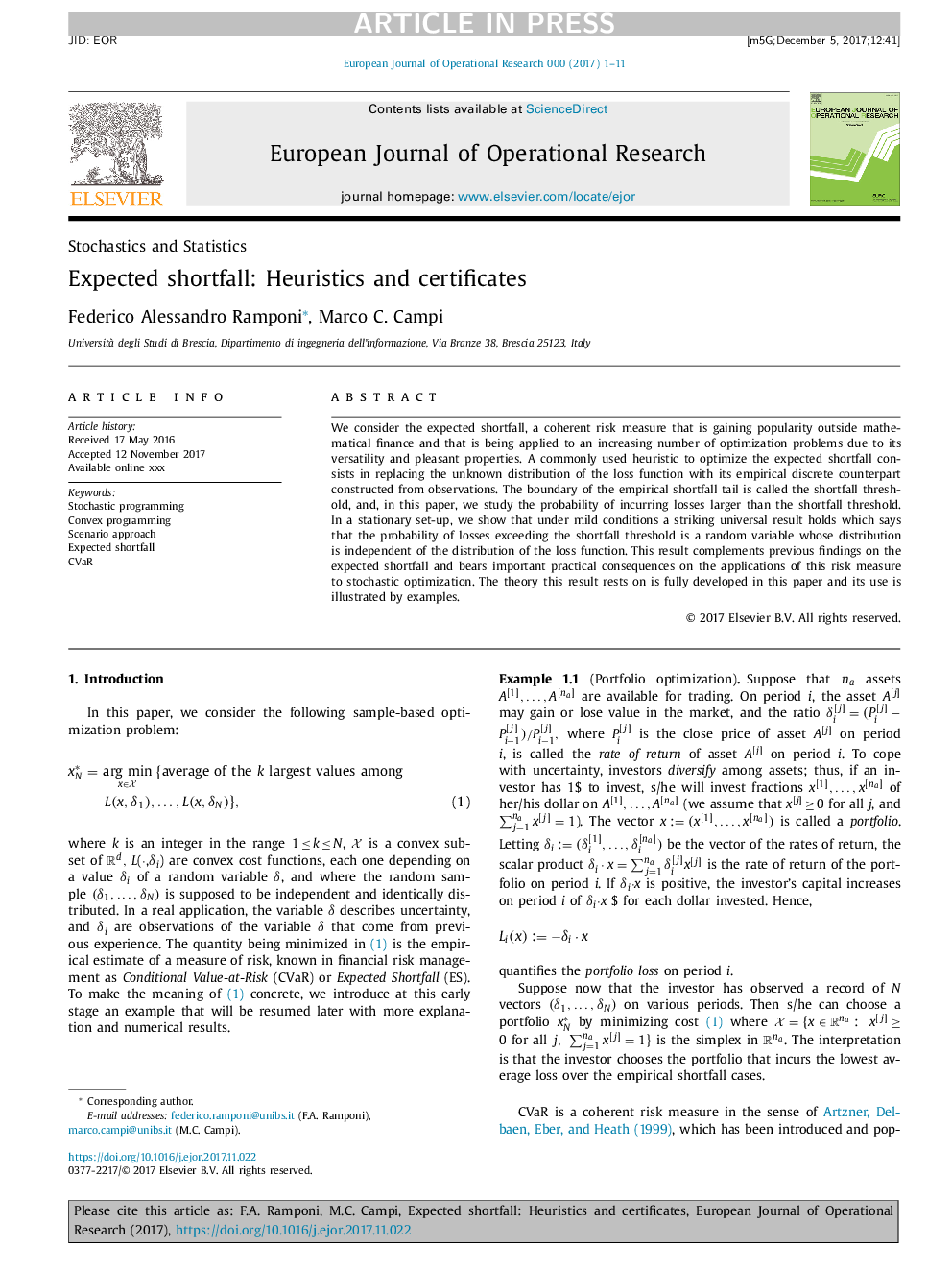| Article ID | Journal | Published Year | Pages | File Type |
|---|---|---|---|---|
| 6894965 | European Journal of Operational Research | 2018 | 11 Pages |
Abstract
We consider the expected shortfall, a coherent risk measure that is gaining popularity outside mathematical finance and that is being applied to an increasing number of optimization problems due to its versatility and pleasant properties. A commonly used heuristic to optimize the expected shortfall consists in replacing the unknown distribution of the loss function with its empirical discrete counterpart constructed from observations. The boundary of the empirical shortfall tail is called the shortfall threshold, and, in this paper, we study the probability of incurring losses larger than the shortfall threshold. In a stationary set-up, we show that under mild conditions a striking universal result holds which says that the probability of losses exceeding the shortfall threshold is a random variable whose distribution is independent of the distribution of the loss function. This result complements previous findings on the expected shortfall and bears important practical consequences on the applications of this risk measure to stochastic optimization. The theory this result rests on is fully developed in this paper and its use is illustrated by examples.
Related Topics
Physical Sciences and Engineering
Computer Science
Computer Science (General)
Authors
Federico Alessandro Ramponi, Marco C. Campi,
